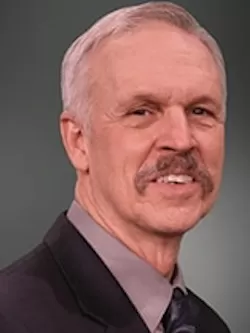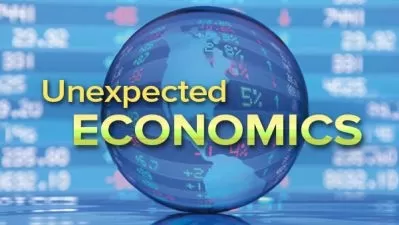Thinking like an Economist: A Guide to Rational Decision Making
Randall Bartlett
6:11:27
Description
Economic forces are everywhere around you. You're made aware of that whenever you reach for your wallet, apply for a loan, shop for health care, or try to figure out the best credit card to carry. But that doesn't mean you need to passively accept whatever outcome those forces might press upon you. Instead, you can learn how to use a small handful of basic nuts-and-bolts principles to turn those same forces to your own advantage.$
Making a few simple adjustments to the way you see things and act on them—learning to "think like an economist"—can give you newfound power and confidence in a surprising range of financial and personal situations that make up your daily life. You can find yourself making better decisions that not only save time and money, but also produce optimum results in other ways important to you. And you can also sharpen your understanding of world and national events.
In the 12 fast-moving and crystal-clear lectures of Thinking like an Economist: A Guide to Rational Decision Making, award-winning Professor Randall Bartlett of Smith College presents some of the fundamental principles and concepts that shape the lenses through which economists view the world. He then shows you how to use these simple analytical tools to understand what you see through those lenses.
By learning to identify the many varied situations in which economics affects your life and how to wield the tools that can help you make the wisest choices in those situations, you'll enhance not only your understanding of daily life but your own success in living it.
A Tool Kit for Changing How You Look at Daily Life
Many of the concepts in Professor Bartlett's tool kit may be familiar.
- People respond to incentives.
- There's no such thing as a "free lunch."
- There are at least two sides to every interaction.
- Everything affects everything else.
- Any action can bring with it significant unintended consequences.
- In this world of complex interrelationships, no one is really in control.
However, when used in the context of three core concepts of economic rationality, marginal analysis, and optimization that Professor Bartlett clearly lays out, his tool kit can make this perhaps the most practical, life-enhancing economics course you'll ever take.
It's an approach that makes Thinking like an Economist a real-life how-to guide that sets aside those often-dry economics textbooks and reveals just how often the seemingly remote forces discussed in their pages are in fact at play in your own life—often in situations in which you may never have dreamed they'd be present.
While most of us can readily appreciate the role those forces play in expected areas—the ones in which monetary values are obviously at work—many of us often give little notice to the full reach of those economic principles into almost every other aspect of our lives, from the safety of our environment to the amount of candidate information we really need in order to cast a wise vote.
After a dozen lectures with Professor Bartlett, things will look very different. You'll see how basic economic ideas like incentives, risks, rewards, and rationality are not just the province of professional economists, government policymakers, or your local bank's loan officer, but instead lie at the root of nearly every decision you must make in your daily life.
Those decisions can include
- choosing wine from a restaurant menu,
- buying an extended warranty on that new television set,
- deciding how to get to work each morning, or
- nearly anything else you might imagine.
Real-Life Examples Clarify Each Key Idea
Using examples drawn from his own life and likely echoing yours, Professor Bartlett shows you how to
- see the world as an economist sees it,
- examine the rationality of individual decisions, and
- evaluate the outcome of those decisions in terms of both personal benefit and social efficiency, which can sometimes differ.
Professor Bartlett has designed Thinking like an Economist to require no previous economics education. And he has scaled his examples to include not only those situations common to us all, but also to those felt across entire countries and even the world, such as the 2008 financial crisis or the debate about global warming and the most practical ways to respond to it.
An engaging and remarkably clear teacher, Professor Bartlett has for years attracted a widespread audience—from both on and off campus—for his annual lecture series on financial literacy. This course will help you grasp why those lectures are so popular, and why the lessons taught in them are so valuable to you.
More details
User Reviews
Rating
Randall Bartlett
Instructor's Courses
The Great Courses
View courses The Great Courses- language english
- Training sessions 13
- duration 6:11:27
- English subtitles has
- Release Date 2023/06/07




















